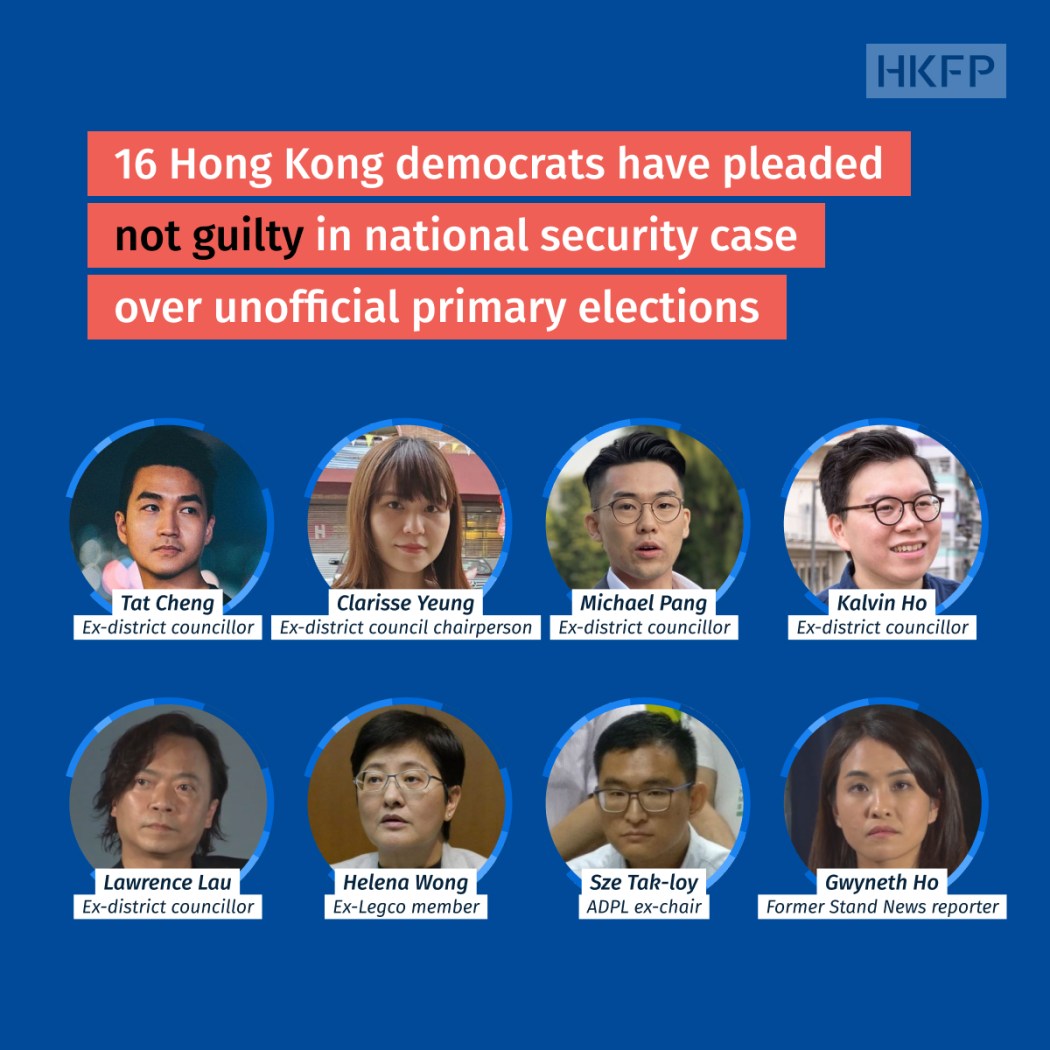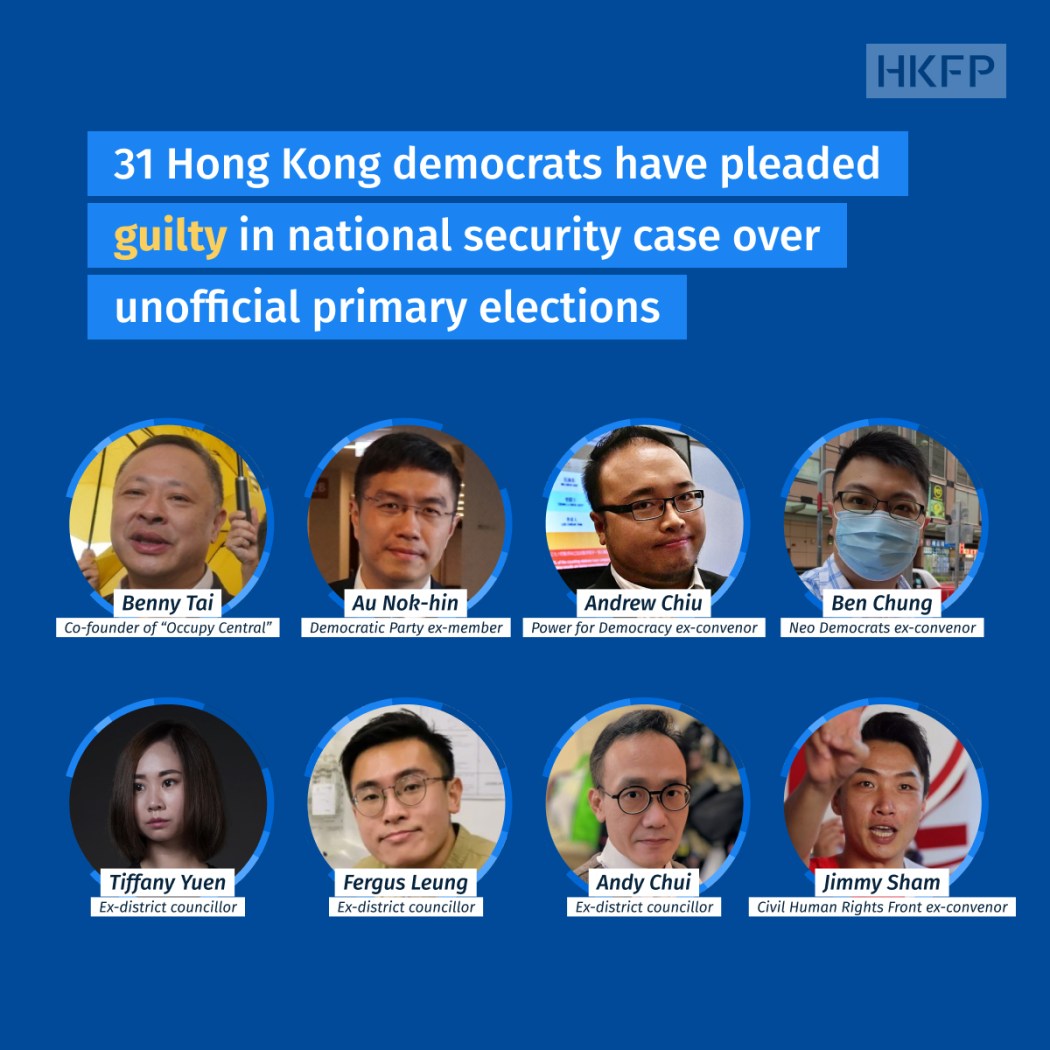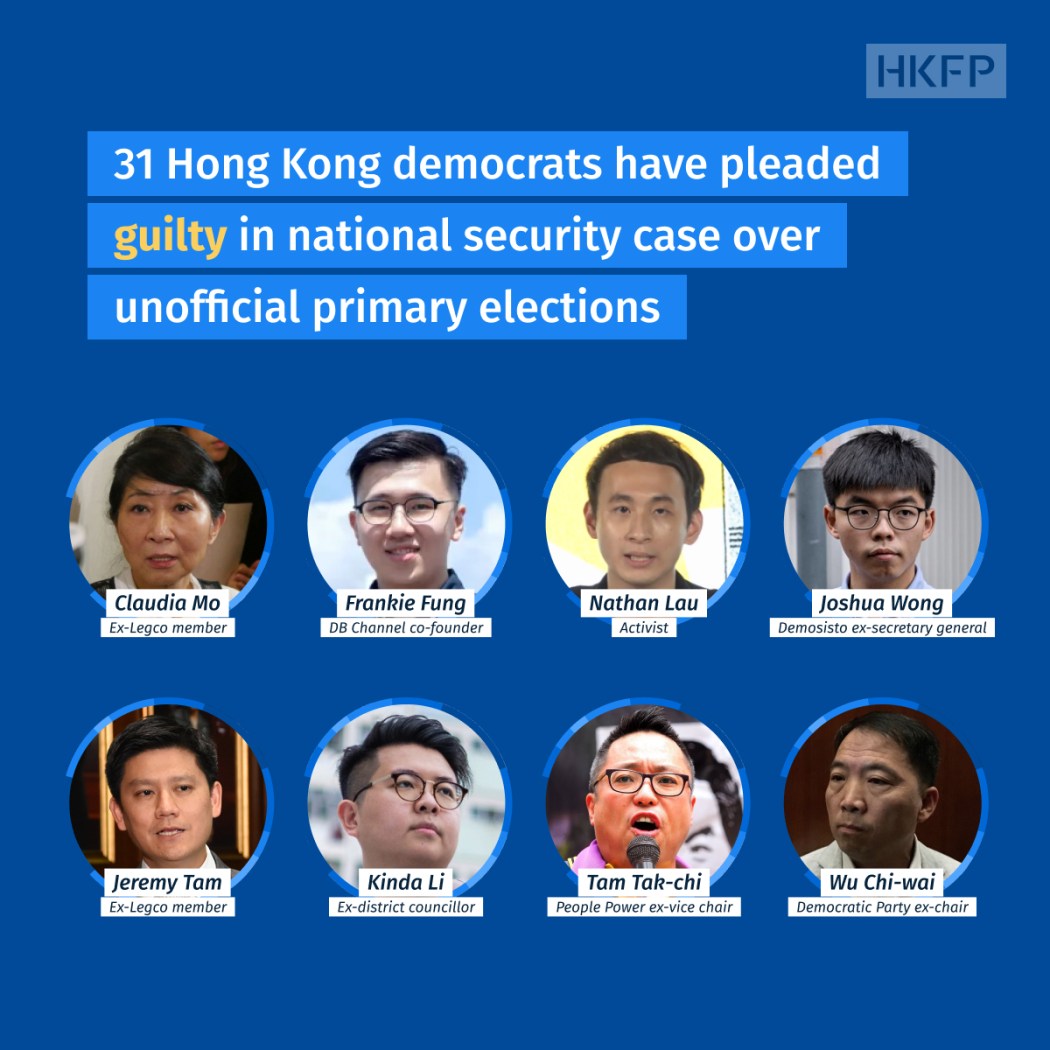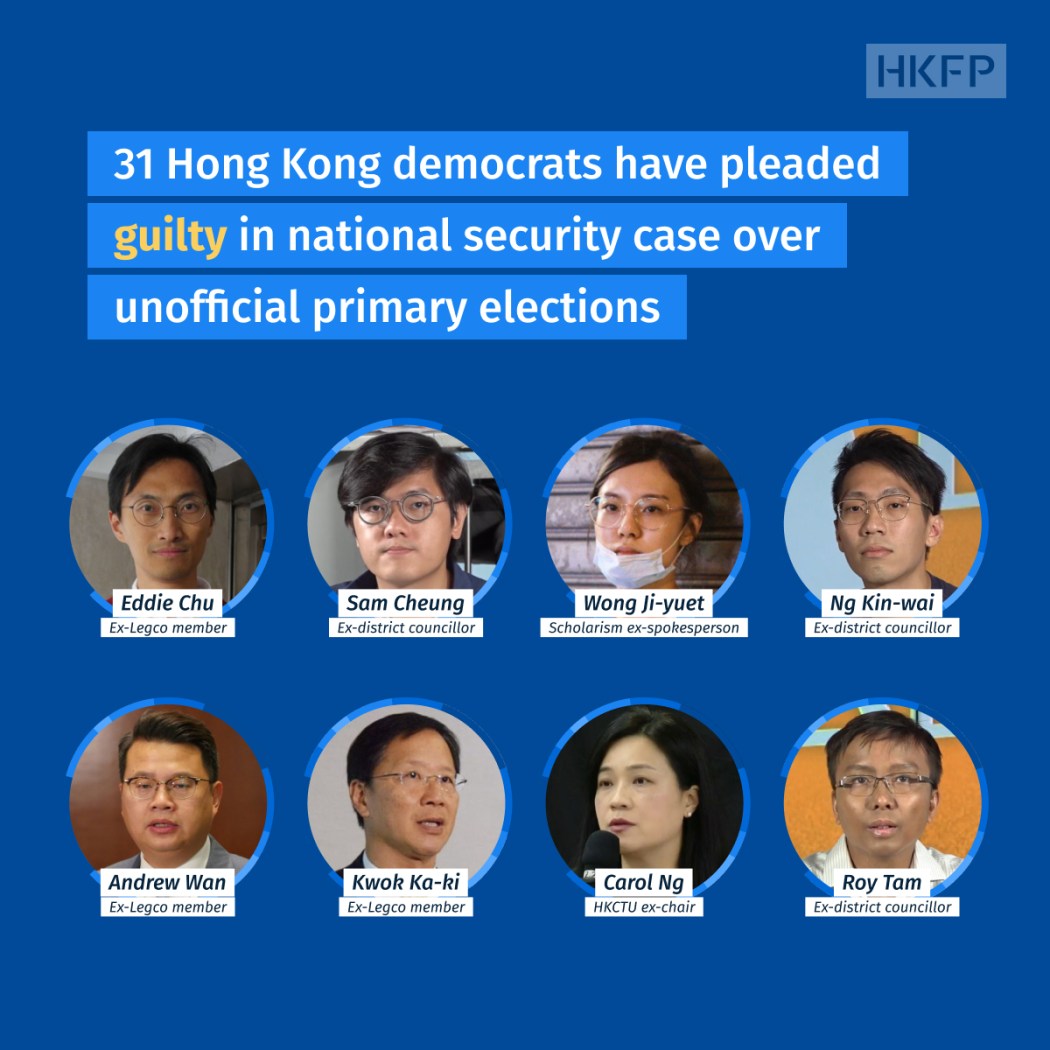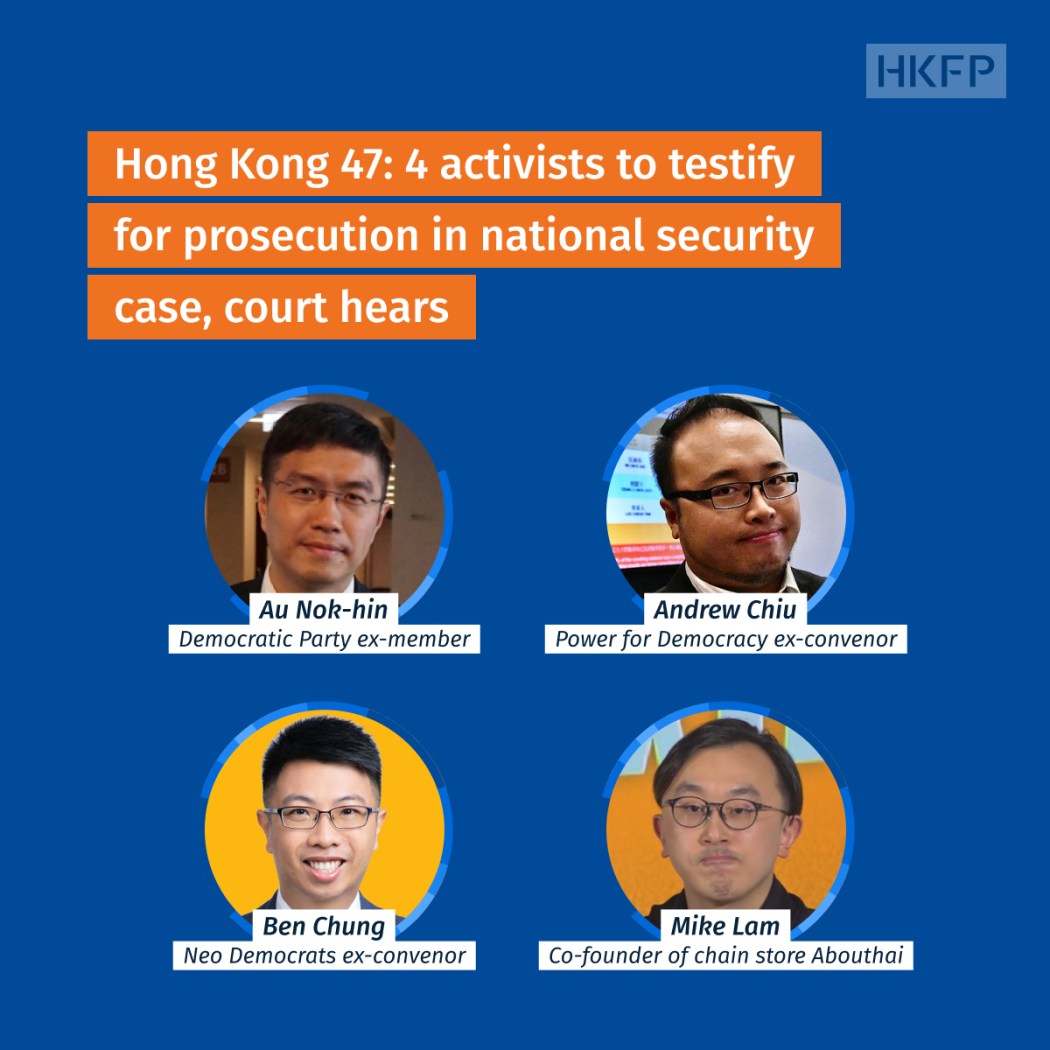Hong Kong activist Gwyneth Ho has said she first thought the government’s budget should be vetoed when she worked as a journalist and covered news related to the Legislative Council.

Ho took to the stand for the second day of her testimony on Tuesday. As she had on Monday, she appeared cheerful, smiling at the public gallery and making gestures while waiting for proceedings to begin.
The 32-year-old is among the 47 democrats charged with conspiring to commit subversion in a case that centres around an unofficial legislative primary election held in July 2020. She and most of the defendants have been detained since March 2021. Prosecutors have alleged that the democrats intended to abuse their powers as lawmakers – if elected – to indiscriminately vote down government bills and paralyse government operations.
Ho, a former journalist who worked for outlets including RTHK, Stand News and the BBC, was among the candidates who ran in the primaries.
Representing Ho, barrister Trevor Beel continued his examination of the activist on Tuesday morning. When asked her thoughts on vetoing the budget in April 2020, when she attended a meeting with democrats to discuss the primaries, Ho said: “Actually, when I was following Legislative Council news [as a journalist], I already thought the budget should be vetoed.”
Judge Alex Lee asked when, specifically, she started thinking that. “Because you were a journalist for some time… so I am not sure what period of time you [are] talking about,” he said.

“[Since] 2011,” she said, adding that she had a “memorable impression” that the pro-establishment camp vetoed a government funding plan.
Ho continued that in 2017, while reporting on a controversial development project in Wang Chau, a village in Yuen Long, she learnt that the annual budget consisted of a fund that “makes up one-sixth of the budget… but cannot be debated by lawmakers.”
Ho was referring to the Capital Works Reserve Fund, which has been criticised by pro-democracy legislators in the past. The fund supports thousands of infrastructure projects yearly, but each project cannot be reviewed individually and lawmakers can only vote on it as a whole, according to local media.
The government was accused of adding controversial projects to the fund alongside minor livelihood works that were generally favoured.
Ho called the use of this fund a “black hole in public finances.”
‘Not a forum for debate’
Ho was among 16 prominent politicians and activists to plead not guilty to the conspiracy to commit subversion charge, which is punishable by up to life imprisonment.
Judge Andrew Chan asked Ho if she were a lawmaker she would cast a vote against the budget in 2020 if the government followed its “usual practice.”
Ho did not answer directly, instead citing the example of the government’s “Future Fund,” a 10-year investment fund for long-term projects. When it was established in 2016, the government said withdrawal of the fund was not allowed “except in emergencies.” Expenditure from the Future Fund would also require the Legislative Council’s approval.
“In 2020, Financial Secretary Paul Chan began using the Future Fund… first to inject money into Cathay Pacific… it was supposed to be untouched for 10 years,” Ho said, speaking faster and louder as she continued.
Judge Andrew Chan told Ho not to shout, adding that doing so “does not make [her] more convincing.”
Chan then said: “Listen Ms Ho, I’m with you on some points actually. But this is not [a] forum to debate the rights or wrongs of our financial secretary.”
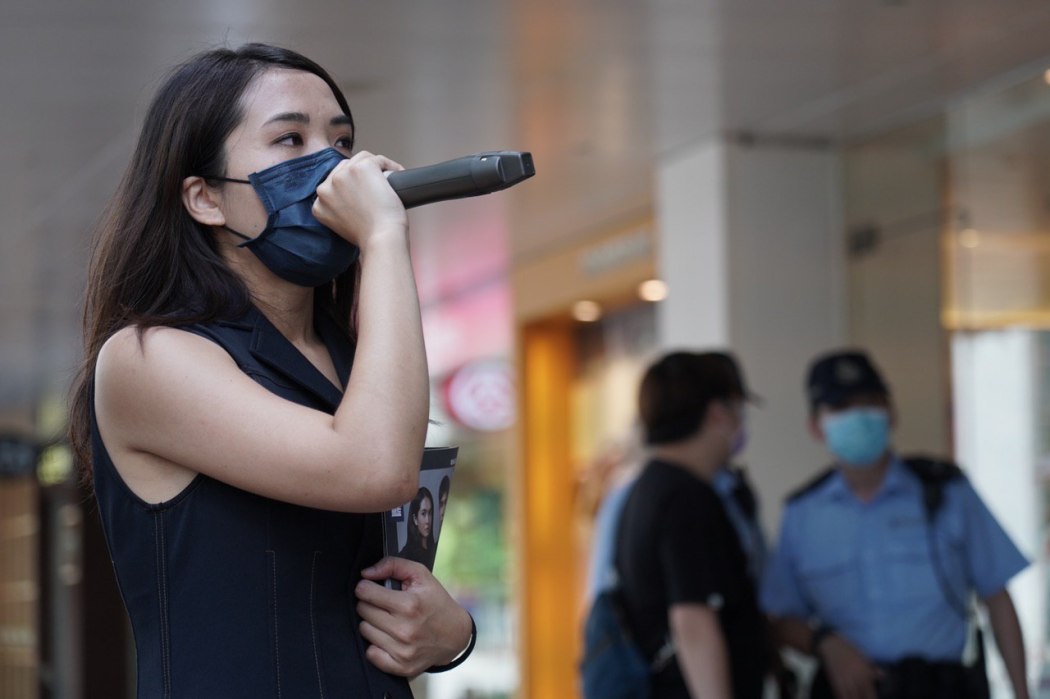
Asked a few more times if she would veto the budget, with Chan calling it a “very simple question,” Ho eventually replied: “Absolutely.”
“Absolutely,” Chan repeated, echoing Ho’s matter-of-fact tone.
Lee asked Ho if her voting intention, were she elected, would be unrelated to the pro-democracy primaries. He also asked if she would veto the budget even if it contained the five demands, but also items that were objectionable.
The five demands were popularised during the protests and unrest in 2019, and included withdrawing the controversial extradition bill that sparked the demonstrations and having an independent investigation into alleged use of excessive force by police.
“If they’re objectionable, of course I would vote against [them],” Ho replied.
‘Single-issue candidate’
Wednesday marked the 87th day of the high-profile national security case. Beel said last week that he expected Ho’s testimony to take three days.
The barrister also asked Ho why she wanted to become a legislator. She responded that voting in the election was low cost and something that everyone can do, so in order to get a mandate for the leaderless protests in 2019, the legislative elections was a “must-take route.“

The ex-journalist also told the court that she decided to run in the New Territories East constituency because she felt the voters there were more concerned with political debates. Of the 12 candidates in the constituency, Ho received the most number of votes.
“I would describe myself as a single-issue candidate,” Ho said, adding that her “single issue” was taking the “spirit” of protest into the legislative elections.
Ho will continue testifying on Thursday.
In June 2020, Beijing inserted national security legislation directly into Hong Kong’s mini-constitution – bypassing the local legislature – following a year of pro-democracy protests and unrest. It criminalised subversion, secession, collusion with foreign forces and terrorist acts, which were broadly defined to include disruption to transport and other infrastructure.
The move gave police sweeping new powers, alarming democrats, civil society groups and trade partners, as such laws have been used broadly to silence and punish dissidents in China. However, the authorities say it has restored stability and peace to the city.
Support HKFP | Policies & Ethics | Error/typo? | Contact Us | Newsletter | Transparency & Annual Report | Apps
Help safeguard press freedom & keep HKFP free for all readers by supporting our team


